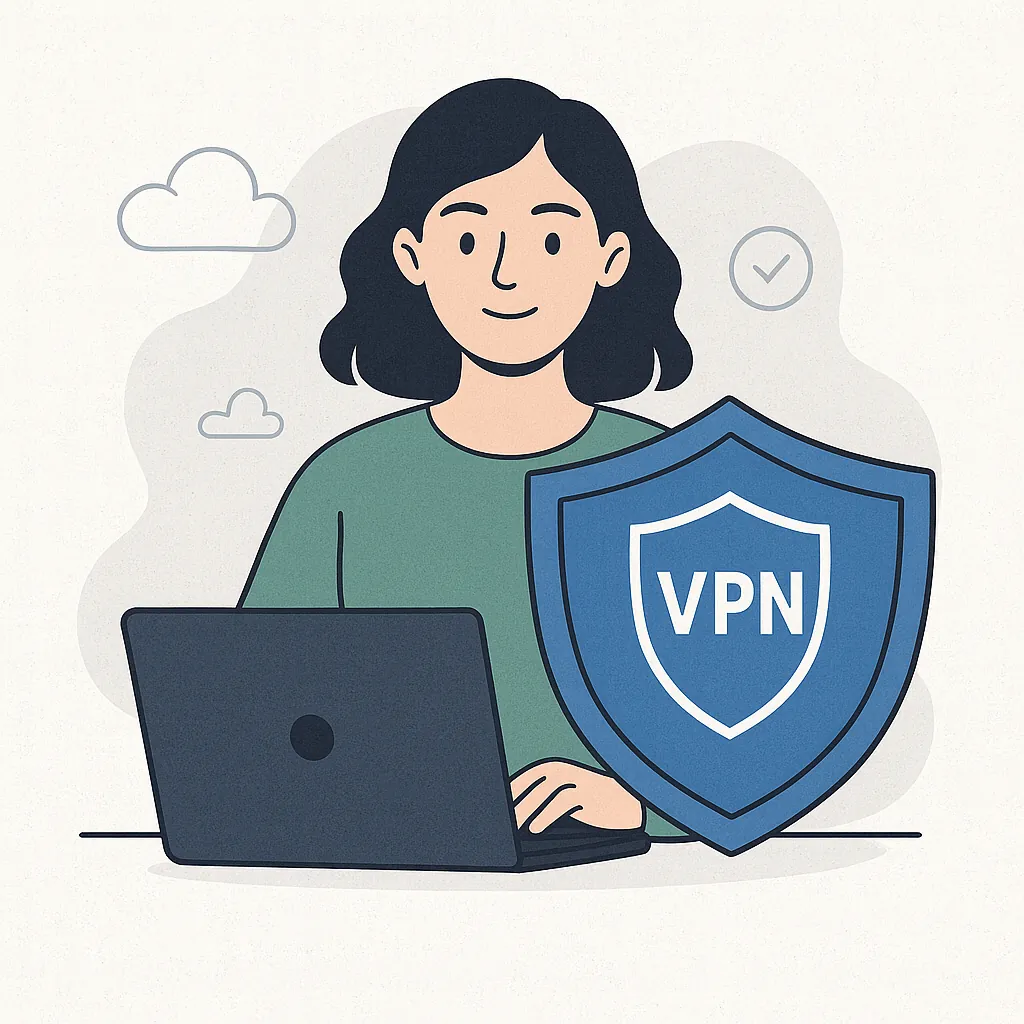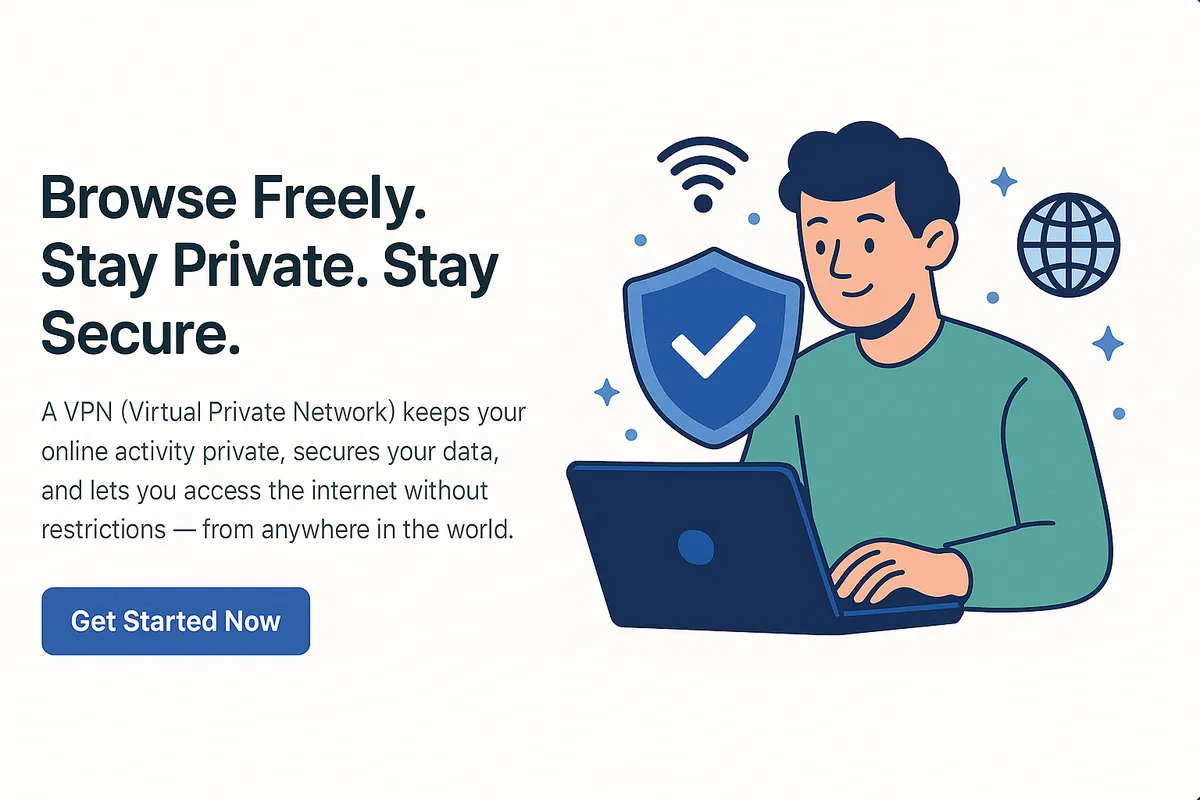Encryption
Your traffic is scrambled so only the intended destination can read it.
A VPN keeps your online activity private, secures your data, and lets you access the internet without restrictions. This page explains what a VPN is, how it works, and how to start using one in minutes.

A Virtual Private Network is like a private tunnel for your internet connection. Without a VPN, your data travels openly and can be visible to your Internet Service Provider, advertisers, or attackers on public Wi‑Fi. With a VPN, your data is encrypted and routed through a secure server before reaching the web.
Your traffic is scrambled so only the intended destination can read it.
Your connection goes through a VPN server that masks your IP address.
Reduce tracking from networks, apps, and advertisers as you browse.
Imagine sending a secret letter in a locked box instead of a postcard. That is what a VPN does for your data. It encrypts your traffic on your device, routes it through a secure server, and delivers it to the destination while hiding your IP address.

Keep your browsing habits away from prying eyes at home, work, or on the road.
Unlock websites and services that are restricted by region or network administrators.
Protect logins, payments, and messages on hotel, cafe, or airport networks.

Yes, VPNs are legal in most countries. If you travel, confirm local laws before use.
There can be a small speed reduction. Good providers optimize for performance so most users do not notice a difference.
Yes. Most providers offer iOS and Android apps alongside desktop applications.
A VPN increases privacy by encrypting traffic and masking your IP. Complete anonymity requires additional practices such as safe browsing habits and device hygiene.
Connect in one tap and enjoy a safer, more open internet.
Choose a well‑known provider with strong encryption, a strict no‑logs policy, and audited security.
Note: Always review each provider’s latest audit reports, privacy policy, and server locations before subscribing.